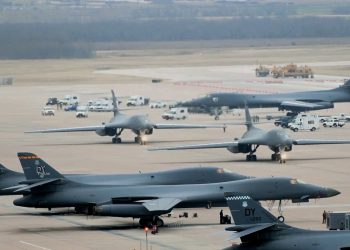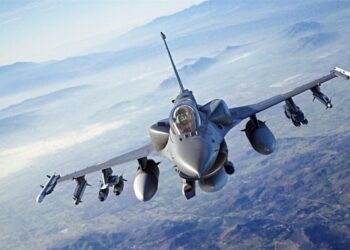,
WASHINGTON: The U.S. Air Force may delay the next step in a multibillion-dollar aerial refueling tanker competition, possibly until mid-February, to iron out remaining details, sources familiar with the matter said on Tuesday.
The service initially hoped to issue a final request for proposals in mid-January for the closely-watched competition, but it is still poring over detailed industry responses to a second draft request received just last week.
“These documents are huge,” said one source, who asked not to be named. He said the final proposal request could slip until the end of January, and possibly into February.
The Air Force said it was working closely with Pentagon officials, Congress and industry to hammer out the final request for proposals, but had no comment on the timing.
“The Air Force is committed to a fair, open and transparent competition,” a spokesman told Reuters.
Defense analyst Loren Thompson of the Virginia-based Lexington Institute said the Air Force had seen no “substantive show-stoppers” and still hoped to release the final request for proposals by the end of next week.
The competition, which could be worth well over $100 billion in the longer term, pits Boeing Co. against a team of Northrop Grumman Corp. and French-German group EADS, parent of Airbus.
Congress killed an earlier Air Force proposal to lease and buy 100 Boeing 767s as refueling tankers after a former top Air Force weapons buyer admitted inflating its price before leaving office and taking a senior job with Boeing.
Given that history, Air Force and Pentagon officials are at pains to ensure this competition is fair and transparent.
Northrop told the Air Force last week that it may not bid for the contract after all, because it remains concerned that the draft bidding guidelines favor Boeing's less-expensive refueling plane, said one source familiar with the matter.
Specifically, Northrop is looking for more detailed criteria on how the Air Force will evaluate extra capabilities, such as the ability to ferry cargo and troops, and conduct medical evacuations, that the Airbus A330 could offer.
Even the requirement for transferring fuel is not well defined, the source said. A decision on whether to withdraw would be made after the final request for proposals is issued.
Northrop could save a considerable amount of money if it withdraws, the source said, noting competitions of this size usually cost between $25 to $30 million.
“Northrop is not going to participate in an artificial competition that allows the government to work the other competitor over on cost,” the source said.
Northrop had no comment on its response to the Air Force. It has insisted the competition must be based on “a correct assessment of the differing capabilities of the platforms.”
Boeing spokesman Bill Barksdale said Boeing recognized the authority of the Air Force to make the rules. “At the end of the day, we'll be there to bid, to compete and to win.”
Bank of America Securities said Northrop was “probably right to try and win as much of the publicity war as possible, even if the chances of it withdrawing are slim indeed.”
Sen. Carl Levin, a Michigan Democrat and the new chairman of the Senate Armed Services Committee, told reporters Tuesday his panel would monitor the competition closely. “They're going to have to persuade us that there's real competition.”
The House Armed Services Committee, led by Rep. Ike Skelton, a Missouri Democrat, has also vowed increased oversight of Pentagon weapons programs.









